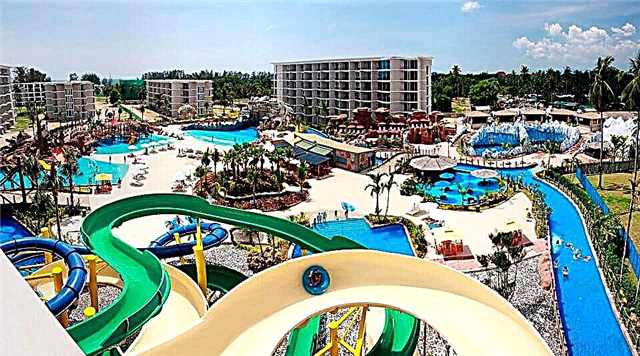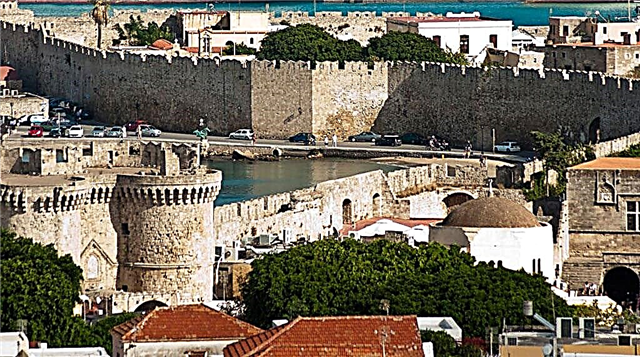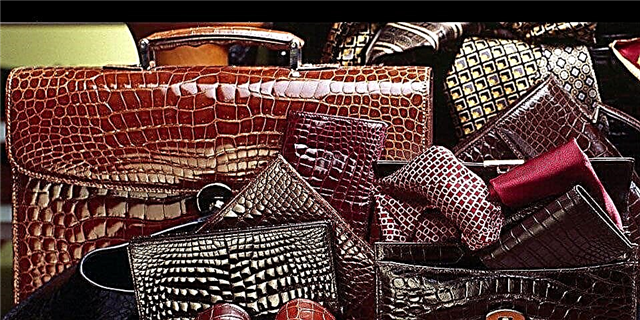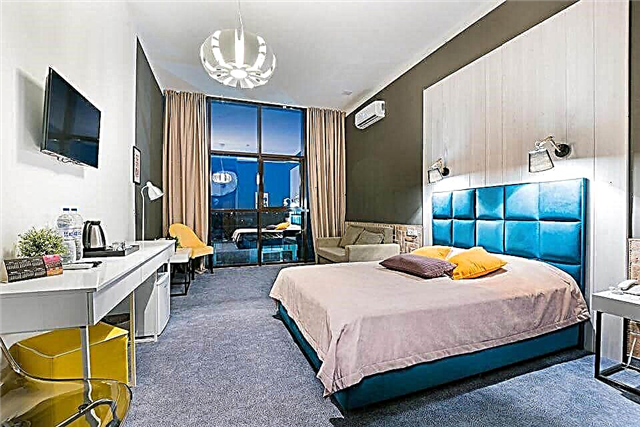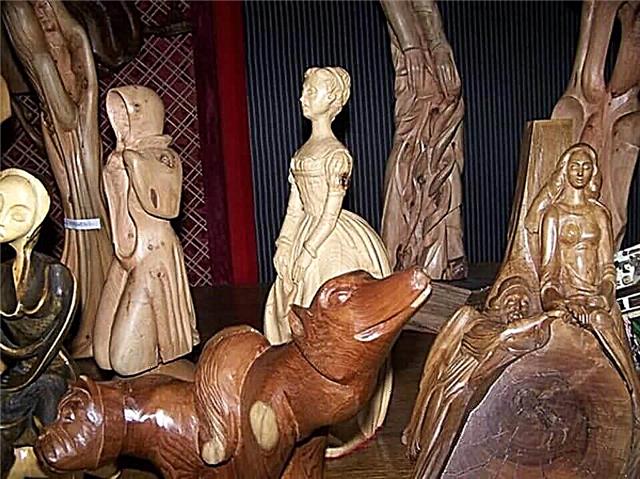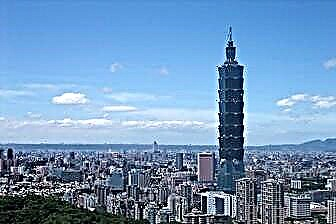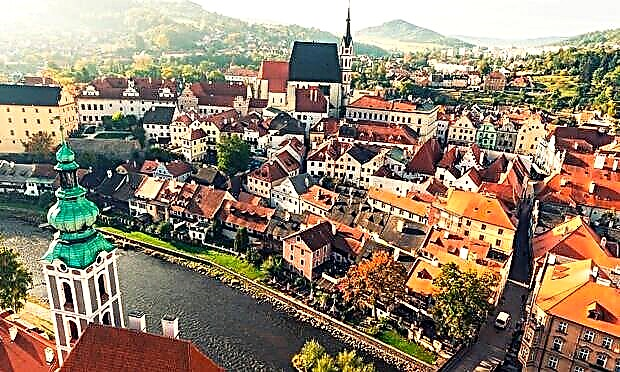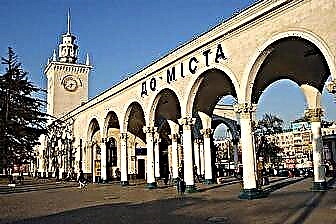Simferopol has great tourism potential. First of all, it is interesting for its museums, the architecture of historical buildings of the 18th – 20th centuries, which has a charming southern accent, and shady parks with an abundance of lush greenery. It is pleasant to come here on an excursion from the sultry Crimean coast, tired of the traditional joys of a lazy beach holiday.
One of the most picturesque places in the city is the Salgirka park, where century-old oaks grow and graceful estates of the past centuries stand among well-groomed alleys. The buildings of the Karaite kenassa and the Kebir-Jami Friday mosque are of considerable interest. In addition, in the vicinity of the city, a new thematic film park "Viking" has been created, where the harsh atmosphere of the Middle Ages has been recreated. This place can be visited with the whole family and get the unforgettable pleasure of immersing yourself in a bygone era.

Apartments and hotels at affordable prices.
from 500 rubles / day
What to see and where to go in Simferopol?
The most interesting and beautiful places for walking. Photos and a short description.
Salgirka Park (Vorontsovsky Park)
Botanical garden and public park located on the banks of the Salgir river. It was created in 1795 by the German scientist P. S. Pallas, who at that time was in public service in the Russian Empire. The park still has a two-hundred-year-old plane tree planted by the founder. Within the garden, there is the original 19th century Vorontsov House and the classic estate of the late 18th century with an astronomical tower.

Gagarinsky park
The largest city park in Crimea, opened in the 1960s. For many decades, it has been a favorite place for walking among the residents of Simferopol. Crimean pines, plane trees, beeches, acacias, chestnuts, poplars and willows grow in abundance here. In the central part of the park, there are two small lakes where duck flocks live. The main walking street of the park - the Walk of Fame leads to the "Eternal Flame" memorial.

Children's park
The children's park was established in 1958. Previously, there was a nursery on its territory, where fruit plants were bred for sale. The place was unique for the USSR at that time. They built an aquarium, a green theater, a Crimean regional children's observatory, and a testing ground for models created by young technicians. A long-lived oak grows in the park, which is 600-700 years old. Its trunk diameter exceeds 6 meters.

Vorontsov's house
Mansion in classical style, located in the Salgirka park. The house was erected in the 19th century for the governor of Tavrida D.M. Naryshkin. Later it was sold to Prince M. Vorontsov, who ordered to lay an orchard around the building and renovate the park, which had fallen into disrepair. In 1837 the royal family stayed here. Nicholas I really liked the estate and the park, he even called the house “a small palace”.

Naples Scythian
An ancient fortress city, which was the capital of the late Scythian state. The first excavations were carried out in 1827, the subsequent ones - only at the beginning of the 20th century. The most significant artifacts were discovered during excavations in the 1950-60s. In Soviet times, it was planned to create an archaeological park on the territory of the settlement, but the project was implemented only in 2011.

Simferopol Kenassa
Religious building of the ethnic group of the Karaites, who lived in the territory of Crimea for many centuries. Kenassa was built at the end of the 19th century at the expense of the Karaite community. The architecture of the building is a mixture of Byzantine, Moorish and Gothic styles. For almost the entire XX century, the building was used for other purposes and fell into disrepair. In 2014, the kenassa was returned to the community.

Kebir-Jami Mosque
Cathedral Mosque of Simferopol, the residence of the main mufti of Crimean Muslims. The construction of the temple dates back to the beginning of the 16th century, therefore it is the oldest building in Simferopol. The building was reconstructed several times, but after the Great Patriotic War it was abandoned for a long time. The revival of the mosque began after the return of the Crimean Tatars from deportation in the late 1980s.

Holy Trinity Convent
The monastery was formed in 2003 around the Holy Trinity Cathedral, built by I.F.Kolodin in the 19th century. The classical facade of the temple is decorated with Corinthian capitals, arches and blue church domes. The relics of St. Luke Voino-Yasenetsy (Crimean) are kept inside. Thanks to the efforts of the Greek Orthodox community, the temple continued to function during the Soviet era and escaped destruction.

Alexander Nevsky Cathedral
Cathedral of Simferopol, erected in 1829 according to the project of I. I. Charlemagne in collaboration with I. Kolodin and blown up in 1930. The idea of building the temple belonged to Catherine II, but it was not possible to start the construction under her. In 1999, a decision was made to rebuild the temple. Work began in 2003. According to the project, the new building of the Alexander Nevsky Cathedral is different from the historical one.

Peter and Paul Cathedral
The cathedral was erected in 1860 to replace the dilapidated wooden church of the early 19th century. Since 1866 female and male schools were opened under him. In the 1930s. the temple was closed and turned into a warehouse, the dome and bell tower were dismantled. The restoration was carried out in the 1980s. under the direction of the architect O. Sergeeva. Thanks to information from the archival documents of the Synod, the temple was able to return to its original appearance.

Central Museum of Taurida
Museum, which exhibits archaeological, ethnographic and natural science exhibitions. The collection covers a wide time period. The museum exhibits Scythian stone sculptures, Egyptian artifacts, documents from the Crimean Khanate era, engravings, maps, medieval decorations and much more. There is also a scientific library, which contains more than 40 thousand volumes on the history of the peninsula.

Crimean Ethnographic Museum
The ethnographic exposition is a branch of the Central Museum of Tavrida. It is located in a historic building from the 19th century. The collection gives an idea of the history and culture of the peoples and ethical groups inhabiting the Crimea - Karaites, Russians, Ukrainians, Crimean Tatars, Belarusians, Estonians and others. The museum funds store 3.5 thousand exhibits, about 700 items are constantly exhibited.

Simferopol Art Museum
The gallery was created in 1922 as a branch of the Central Museum of Tavrida. Since 1937, a separate building has been allocated for the art exhibition. Almost the entire collection, consisting of ancient icons and paintings of the 18th - early 20th centuries, perished during the Great Patriotic War. The gallery was reopened in 1947. The funds were formed from exhibits that were sent from the main museums of the USSR.

Museum of the history of the city of Simferopol
The museum was created in 2009 by the decision of the city authorities. The exposition is located in the central part of Simferopol in a 19th century building. Museum funds are formed with the active participation of city residents. The collection consists of documents, paintings with views of Simferopol, household items, photographs of the late 19th - early 20th centuries, memorable exhibits from the First World War and the Civil War.

Chocolate Museum "Salon du Chocolat"
"Salon du Chocolat" - a pastry shop, cafe and a small exhibition telling about the history of chocolate, housed in one building. Here visitors can taste dozens of desserts, pastries and cakes. To create museum exhibits, confectioners needed about a ton of material.Here you can see world sights, fairytale castles and houses, portraits of famous people, bouquets and figures made from different types of chocolate.

Human Anatomy Museum
The exposition opened in 1931 in a historic building of the 18th century at the S. Georgievsky Crimean Medical University under the direction of Professor V.V.Bobin. The collection is divided into thematic sections: "History of Crimean morphology", "Human Anatomy", "N. Pirogov and Crimea ". The anatomical section (the so-called "Crimean Cabinet of Curiosities") contains about 1200 natural exhibits.

Museum of electric transport "Krymtrolleybus"
The museum was opened in 1977 at the initiative of the Crimean Trolleybus Administration. The exposition, located in the administrative building of the enterprise, tells about the history of the creation of trolleybuses and trams, about the development of routes connecting Simferopol with the southern coast of the peninsula, as well as about the enterprise itself, its achievements and employees. The museum collection contains more than 3 thousand exhibits.

Crimean Academic Theater named after M. Gorky
The Simferopol Theater dates back to 1820, when the Moscow merchant and enthusiastic theater-goer Volkov organized the first stage in a former barn located in the courtyard of the local noble assembly. In 1873, a separate building with a hall for 410 seats was erected for the theater. The modern building was built in 1911. It was built by the architect A.N. Beketov.

Crimean Academic Puppet Theater
The theater was founded in 1938. A building designed by the architect B. Belozersky was erected especially for him, which was later blown up during the Great Patriotic War. After the end of hostilities, the theater resumed its work in the building of the House of Culture of Power Engineers. In 2000, 2001, 2004 and 2012. it hosted international and thematic festivals of puppet theaters.

Cinema "Simferopol"
The cinema is housed in a monumental neoclassical building of the 1950s, designed by V.P. Kalmykov. The structure resembles a real palace with balustrades, Greek-style columns and gracefully decorated arched windows. Along the edges of the façade, there are two symmetrical round towers that complete the architectural appearance. There is a small city garden behind the cinema.

Cinema named after T. G. Shevchenko
The oldest cinema in Simferopol. The building was erected at the beginning of the 20th century in the Art Nouveau style, which dominated the minds of the architects of that time. Inside there was a spacious cinema hall for 800 seats, equipped with separate boxes. In the intervals between screenings of tapes for the venerable audience, an orchestra played. In 2003 and 2011. renovations were carried out. At the moment, the cinema has five halls.

Cinema Park "Viking"
Family amusement park, which was opened on the basis of the scenery from the set of the Russian saga "Viking". It is located next to the Red Caves in the Simferopol region. Kinopark is a historical reconstruction of the settlement of the 8th – 11th centuries. - "Viking village". Inside are houses, craft workshops and watchtowers. Theatrical battles in full dress, master classes and games are organized for tourists.

Radio telescope TNA-400 in Shkolny
The first radio telescope created on the territory of the USSR to provide launches of spacecraft to the Moon. Here was the control center, where the first images of the lunar surface were taken. The object was used until the end of the last century. In the period 2003–2014. all buildings of the radio telescope were destroyed and sold for building materials. Only the TNA-400 antenna with a diameter of 32 meters survived. Roskosmos plans to fully restore the facility's performance.

Train station Simferopol-Passenger
The main railway station of the city, which was built in 1951 according to the project of A. Dushkin. The building was rebuilt in 2000. The complex of the modern station is a building in the classical "southern" style with arches, galleries and a 42-meter clock tower that harmoniously fit into the overall architectural concept of Simferopol. The station serves long-distance and suburban routes.

Denisovskaya ostrich farm
An amusement park for the whole family, located 6 km from Simferopol. The farm organizes excursions, horse trips to the picturesque places of Crimea and fishing. In addition to ostriches, peacocks, geese, Vietnamese pigs, ducks and other animals live there. Children will be interested in riding donkeys. For guests there is a restaurant where dishes from ostrich meat are prepared.


